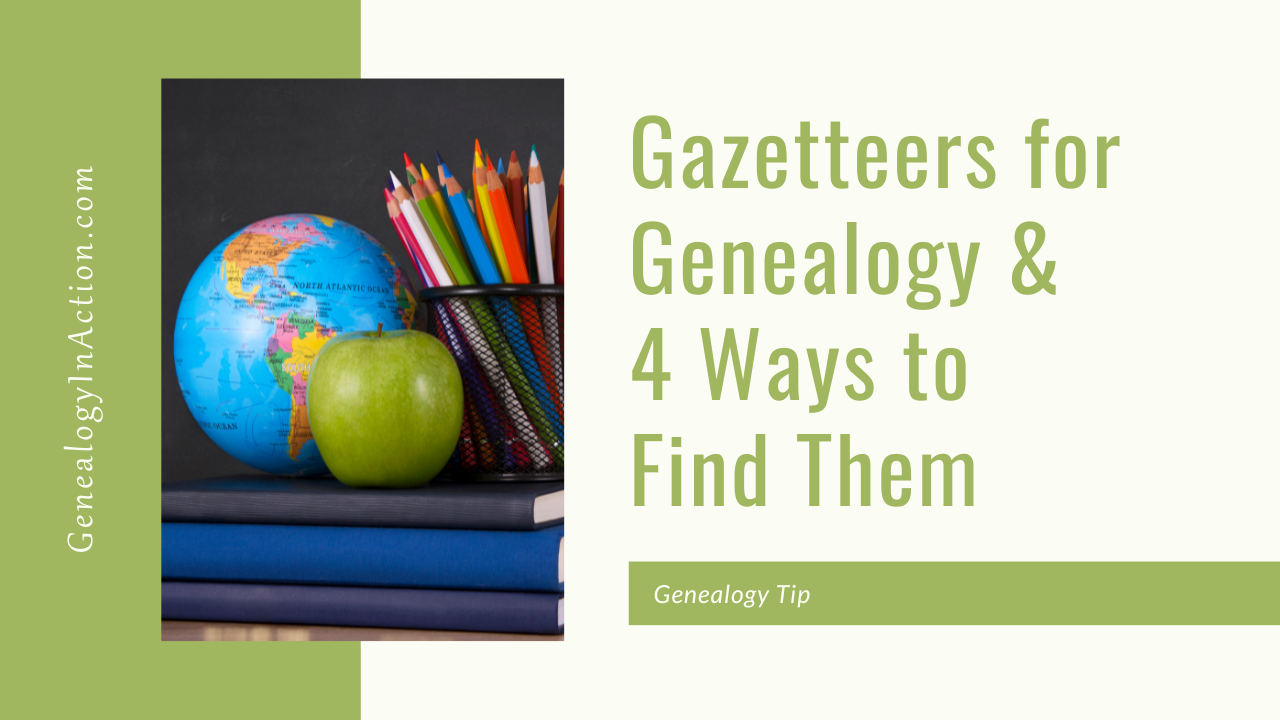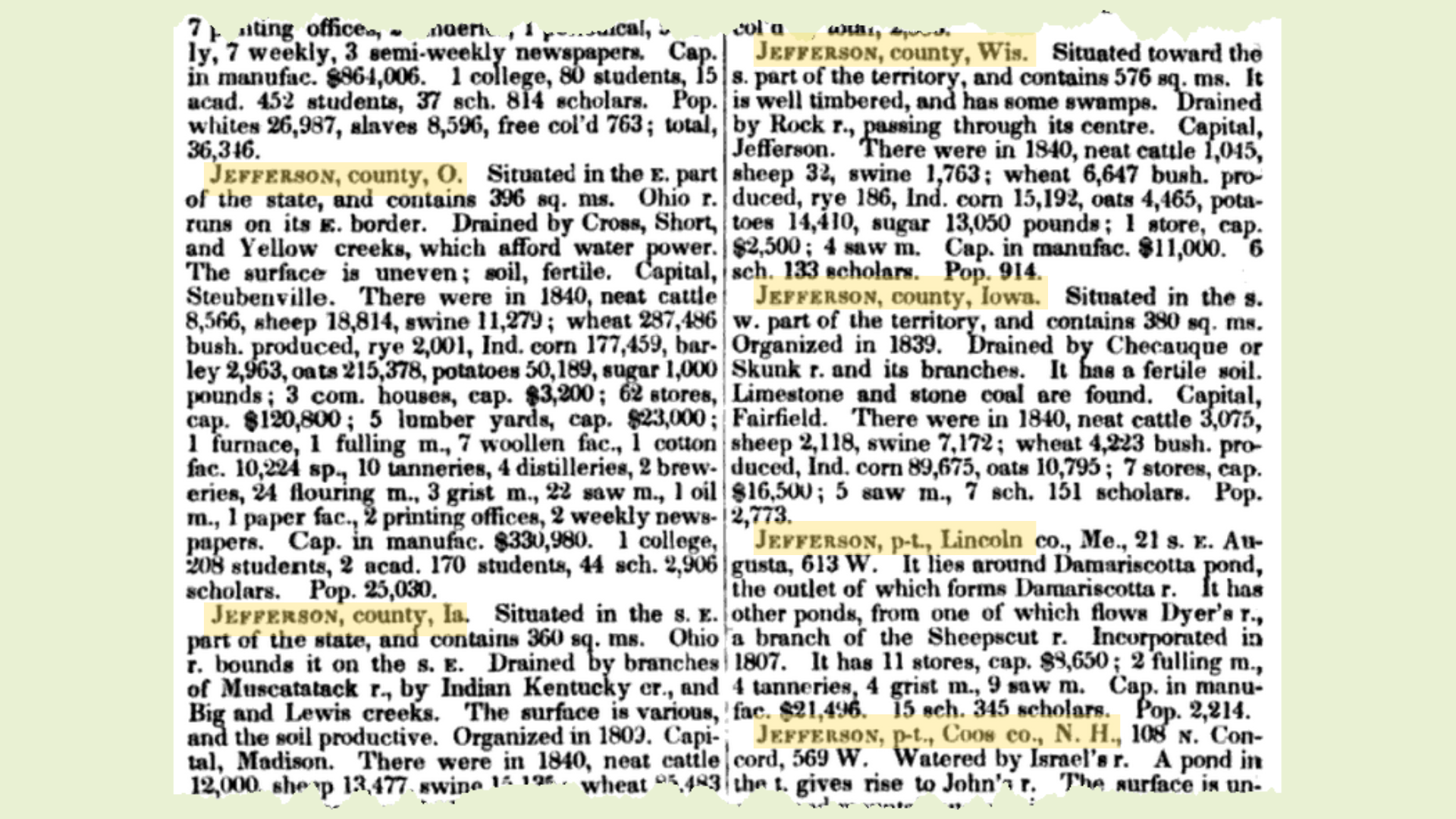
Gazetteers for Genealogy & 4 Ways to Find Them
Sep 08, 2022If you’re looking for another way to learn about the places your ancestors lived, gazetteers are something to be explored. Let’s take a look at what gazetteers are and how to find them (and yes, there are many available for free online!). Plus, I'll share two pro tips so that you can find and utilize gazetteers with ease.
What is a Gazetteer & How Can They Help?
First, you might be wondering what the heck a gazetteer is. Many years ago, when I was first encouraged to seek out a gazetteer, I had no idea what the person was talking about. But as a budding genealogist, I did some research and learned that a gazetteer is basically a dictionary of places. I then found several gazetteers online, explored them, and understood why they are so important for genealogy research.
Gazetteers come in different shapes and sizes, but for the most part, you can learn all sorts of things about cities, towns, counties, and even things like churches, schools, and other buildings. You may also learn about physical features such as lakes, rivers, mountains, and more. What’s nice is that you can also learn about variant spellings of the place name, place name changes, and any places that are now defunct. Some gazetteers also contain historical data related to the place, including social statistics, boundary changes, and the overall history of a place. Good stuff, right?
Here’s a portion of a page from A Complete, Descriptive and Statistical Gazetteer of the United States, published in 1840, to give you an idea of what a gazetteer might look like.

Gazetteers are definitely something you’ll want to seek out, but where can you find them? I’ve got four places you can look.
Where Can You Find Gazetteers?
- Gazetteers that are in book form can be found in libraries, so searching library catalogs in the places of interest, or using a catalog such as Worldcat are places to start.
- Fortunately, many gazetteers are digitized and available online, often for free. Search the three main digital book websites: Google Books, HathiTrust, and Internet Archive. You might also find them digitized through FamilySearch, Ancestry, and other genealogy-related websites. And don’t neglect digital archives collections all over the internet.
- Additionally, there are several websites themselves that are considered gazetteers. Remember, a gazetteer is simply a dictionary of places, so websites such as John Grenham’s Irish Placenames, Gazetteer of British Place Names, and Meyers Gazetteer, are also worth a look. Some of the websites are actually based off a published book, like the Meyers Gazetteer website. Sometimes the websites are compilations based on a variety of sources.
- But, before you start searching the internet, I have an easier way to find these gems. The FamilySearch Wiki has a page dedicated to gazetteers. From this one-stop-shop, you can pick a country or US state and head to a page with a listing of the various gazetteers available. There is also a listing of universal gazetteers. Many of the lists are extensive, although probably not exhaustive. But, it’s a great starting point, and once you’ve checked it out, then you can use the other three ways to find even more.
Pro Tips
Now before you head off in search of gazetteers, I want to share two pro tips with you so you can better find, and more importantly, use, gazetteers effectively.
- The term “gazetteer” may not be part of the title. Try replacing “gazetteer” with words like “dictionary,” “directory,” and “index.”
- Make sure to read and make a copy of any introductory material so you know what was included in the gazetteer and how the information was compiled, as well as any key or abbreviations list, so you can decipher the entries correctly.

So now that you know what a gazetteer is and four ways to find them, it’s time to take action. Pick a location related to a project you’re currently working on. Using the information in this video, look for gazetteers related to that location. I would love it if you came back here and post what you find in the comments of this video. Who knows, you may help someone else out or even connect with another researcher who is interested in the same places you are.
I hope you enjoyed this article and that you’re ready to check out some gazetteers so you can learn more about the places your ancestors lived. If you found this article helpful, be sure to add the Genealogy In Action blog to your favorite RSS reader.
© Julie Tarr. This article was first published at Genealogy In Action; appearance of this article elsewhere, without my permission, violates copyright.
